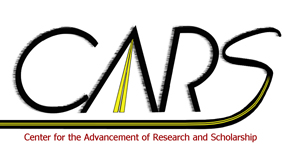Poster: Preliminary Study Results: Learning from Women Formerly Incarcerated for Violent Crime
Location
Moakley Atrium
Start Time
14-5-2014 4:00 PM
End Time
14-5-2014 5:00 PM
Description
This poster session will offer preliminary results from a mixed-methods study. The study had two aims: to explore how formerly incarcerated women understand and explain the connections between childhood and adult adverse events and their incarceration for a violent crime; and to identify strengths and supports that women utilize to avoid committing violent crime. This study is grounded in phenomenological inquiry and guided by the objectives of Feminist Participatory Action Research (FPAR). FPAR promotes the empowerment of participants by engagement in all aspects of the research project and provision of opportunities for the women to be empowered through their direct involvement in resulting social action. Preliminary results indicate that histories of violent victimization, poverty, addiction, and intimate partner violence are factors in women’s pathways to prison for violent crimes. Family, religious beliefs and supportive services are noted by participants as crucial to recovery and community re-entry.
Poster: Preliminary Study Results: Learning from Women Formerly Incarcerated for Violent Crime
Moakley Atrium
This poster session will offer preliminary results from a mixed-methods study. The study had two aims: to explore how formerly incarcerated women understand and explain the connections between childhood and adult adverse events and their incarceration for a violent crime; and to identify strengths and supports that women utilize to avoid committing violent crime. This study is grounded in phenomenological inquiry and guided by the objectives of Feminist Participatory Action Research (FPAR). FPAR promotes the empowerment of participants by engagement in all aspects of the research project and provision of opportunities for the women to be empowered through their direct involvement in resulting social action. Preliminary results indicate that histories of violent victimization, poverty, addiction, and intimate partner violence are factors in women’s pathways to prison for violent crimes. Family, religious beliefs and supportive services are noted by participants as crucial to recovery and community re-entry.
